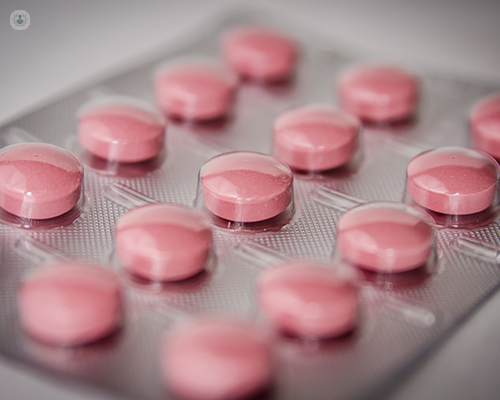Chronic sinusitis: what you need to know
Autore:Chronic sinusitis is a condition that can lead to painful, annoying symptoms that only worsen if left untreated. In his latest article, renowned rhinologist Professor Carl Philpott explains this condition in detail, including its symptoms and treatments.

What is considered chronic sinusitis?
To make a diagnosis of chronic rhinosinusitis, a patient must have met the following criteria:
- The presence of nasal blockage and/or nasal discharge (runny nose)
- The presence of smell loss/reduction and/or facial pressure/pain
- Symptoms have been present for 12 weeks or more
- Confirmation with endoscopy and/or CT scan is needed to see evidence of features such as polyps, mucus discharge from sinuses, swelling of key sinus drainage area, changes on CT scan
How can chronic sinusitis be treated?
Baseline treatment is with a nasal steroid spray and nasal douching. Oral steroids can be used for short-term relief in those cases with nasal polyps. The role of antibiotics (long course) is subject to further research.
In the future, new medications known as monoclonal antibodies will become more widely available to treat more severe cases.

When is surgery deemed necessary?
When medical treatment alone fails to control symptoms, surgery has a role to play in allowing nasal steroids and nasal douching to have better access to treat the sinuses. In cases where the disease is localised to one side of the nose, surgery may completely resolve the problem in the majority of cases.
What happens if it is left untreated?
In patients with asthma, it can worsen. Patients without pre-existing asthma can develop late-onset asthma. The best outcomes in preventing problems with asthma are seen when surgery is undertaken within 1 year of diagnosis. Rarely patients can get complications of sinusitis where there is the involvement of nearby structures such as the eye and the brain.
Can chronic sinusitis ever go away completely?
In cases involving both sides of the nose, the majority of patients need long-term maintenance treatment with nasal steroids and nasal douching, even after surgery. As mentioned above, in cases just affecting one side, there is usually complete resolution after surgery.
Professor Carl Philpott is a leading rhinologist based in Norwich and Great Yarmouth, with more than 25 years of experience. If you would like to book an appointment with Professor Philpott you can do so today via his Top Doctors profile.


